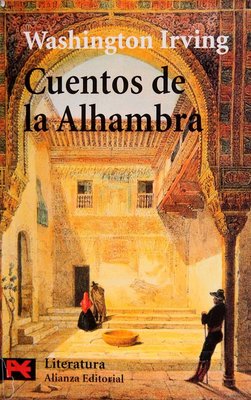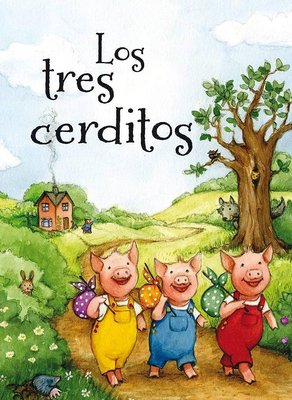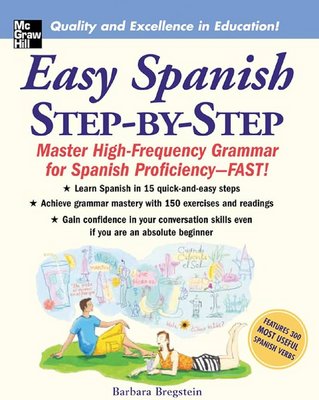
Language travel in Spanish
Take a language trip to Spain or Cuba with Sprachcaffe.
More information »Beginning Spanish books are carefully structured to guide students through the fundamentals of the language in a gradual and effective manner. These books typically address essentials such as basic vocabulary, elementary grammar and everyday communication skills. As you progress in your learning, you can also find books that are tailored to more advanced levels, allowing you to delve deeper into more complex aspects of Spanish.
Learning Spanish through books designed for beginners is a solid and structured approach to acquiring skills in this vibrant language. These books will provide you with a solid foundation for your Spanish learning journey and help you build the skills necessary to communicate confidently in everyday situations and beyond. In addition, as you progress in your learning, you will have the opportunity to explore more advanced books and enjoy the rich literature and culture that the Spanish-speaking world has to offer.
Below is a list of books available online, on audiobook platforms or you can simply go to a bookstore to purchase your favorite. Have fun!
"Don Quixote of La Mancha," written by Miguel de Cervantes, is an iconic novel of Spanish literature. It narrates the adventures of Don Quixote, a dreamy knight who goes mad after reading too many books of chivalry and decides to become a knight-errant. Accompanied by his faithful squire Sancho Panza, he fights windmills believing them to be giants and faces numerous challenges in a world that often mocks his ideals. The play is a satire of society and a profound exploration of fantasy and reality, questioning the nature of madness and sanity.
This adapted version of the literary classic "Don Quixote de la Mancha" is designed specifically for beginners, with simpler language and explanatory notes.


"Los Cuentos de la Selva" is a collection of stories written by Uruguayan author Horacio Quiroga. These tales are set in the missionary jungle of Argentina and feature animal characters in human situations, teaching moral and ethical lessons. Each tale highlights values such as solidarity, courage and respect for nature, while exploring the interactions between animals and their environment. These captivating stories are both entertaining and educational, and offer a unique insight into life in the South American rainforest.
This book presents a series of short stories that are ideal for beginners. The stories are set in the South American rainforest and are entertaining and accessible.
"The Little Prince" is a short novel written by Antoine de Saint-Exupéry. The story follows an airline pilot who finds himself lost in the Sahara desert, where he meets a little prince who comes from a tiny asteroid called B-612. Throughout the narrative, the Little Prince shares his experiences of interplanetary travel and his encounters with peculiar characters on different asteroids. As the Little Prince and the pilot converse, the story touches on deep themes such as friendship, love, loneliness and the importance of seeing the world through the eyes of a child. Through his journey, the Little Prince conveys life lessons and universal values that have a profound impact on the reader. The work highlights the idea that what is essential is invisible to the eye and emphasizes the importance of caring for loved ones and the world around us.
Although originally written in French, "The Little Prince" is a short novel that is available in Spanish. It is a story with relatively simple language and many illustrations that aid comprehension.


"Los Cuentos de la Abuela Amelia" is a book written by Ana María Pavez and Constanza Recart. This book is known for its focus on oral storytelling and the transmission of stories through generations. The stories presented in the book are traditional tales and folktales that have been collected and presented in a way that captures the essence of the oral tradition.
The work focuses on the figure of Grandmother Amelia, who narrates these stories to her granddaughter, generating an atmosphere of closeness and family tradition. The stories are a mixture of traditional tales from different cultures, fables and stories that have been passed down through time.
This book contains short and easy to understand stories, ideal for beginners. The stories are full of imagination and can be enjoyed by readers of all ages.
Then join us on a language trip to Barcelona, Malaga or Havana - we guarantee your language improvement and the fun is already included!
"The Shadow of the Wind" is a novel written by Spanish author Carlos Ruiz Zafón. The story follows a young man named Daniel Sempere, who, after discovering a book in the Cemetery of Forgotten Books, embarks on a quest to unravel the mystery behind the author, Julian Carax, and protect his works from being destroyed by a mysterious man named Laín Coubert. As Daniel investigates Carax's life, he uncovers dark secrets and connections to his own family. The novel blends elements of mystery, love, literature and suspense as it explores the power of books and the influence of words in our lives. "The Shadow of the Wind" is the first installment in "The Cemetery of Forgotten Books" series and is a captivating story that has captivated readers around the world.
"La Sombra del Viento" is a popular novel in Spanish, and some publishers offer adapted versions for beginners that maintain the essence of the story, but simplify the language.


"The Tales of the Alhambra" is a collection of short stories written by Washington Irving during his stay in Spain in the 19th century. These tales are set in the city of Granada and its famous Alhambra, an Islamic palace and fortress. Irving recounts his experiences and encounters at the Alhambra, weaving stories that blend elements of history, fantasy and Andalusian culture. The stories explore themes such as the beauty, mystery and fascination that the Alhambra holds for visitors. They also offer a romantic vision of Spain and its traditions, making it an influential work that contributed to the perception of Spain in Western literature.
This work contains tales and legends related to the Alhambra in Granada, Spain. The stories are accessible and offer insight into Spanish culture and history.
"The Three Little Pigs" is a popular folk tale that tells the story of three little pigs who build different houses to protect themselves from a fierce wolf. The first piglet builds a straw house, the second a wooden one, and the third a brick one. When the wolf tries to enter the straw and wooden houses, he easily knocks them down, but he cannot do the same with the third piglet's brick house. In the end, the wolf is defeated and the three little pigs learn the importance of planning and hard work in building a safe home. The story teaches lessons about preparation and perseverance.
These traditional children's storybooks can be found in Spanish. They are excellent for beginners because of their simple and familiar language.


"Easy Spanish Step-by-Step" is a Spanish language learning book written by Barbara Bregstein. This book is designed to help students of Spanish, especially those who are beginners, to acquire and improve their language skills gradually and effectively.
The book focuses on teaching essential Spanish grammar and vocabulary in a clear and easy-to-understand manner. It uses a step-by-step approach that takes students through the grammatical structures and rules of the language in a progressive manner. Each chapter introduces new concepts and then provides examples and practical exercises for students to practice and reinforce their understanding.
Although not a traditional reading book, this beginner's guide to learning Spanish is very useful for students who want to improve their language skills by providing practical exercises and clear explanations.
In addition to books, there are several types of texts that can be useful for learning Spanish as a beginner. These texts include:
Online News and Articles: Many news websites offer articles in Spanish that are written in clear and accessible language. You can search for news on topics of interest to you to practice reading in Spanish.
Blogs in Spanish: Blogs are an excellent source of content written in Spanish. You can find blogs on a wide variety of topics, from travel and cooking to technology and lifestyle.
Magazines and Children's Magazines: Spanish-language magazines often contain short, visual articles that are suitable for beginners. Children's magazines are also useful for learning basic vocabulary.
Comics and Graphic Novels: Comics and graphic novels in Spanish are a fun way to practice reading. The pictures can help you understand the context and dialogue.
Manuals and Instruction Guides: Product manuals and instruction guides often have clear, straightforward language, making them useful for learning specific vocabulary related to everyday objects and activities.
Short Stories and Fables: Short stories and fables often have a simple narrative structure and can be very useful for beginners. You can find many classic fables in Spanish.
Song Lyrics: Popular songs in Spanish are a great way to learn vocabulary and improve listening comprehension. You can search for song lyrics and follow the music as you read the lyrics.
Social Media Posts: Social networks such as Twitter and Instagram can provide examples of informal and colloquial Spanish language. You can follow Spanish accounts and read their posts.
Language Learning Apps: Many mobile apps and online platforms offer interactive lessons and exercises designed for beginners in Spanish.
Diversity of Literary Genres: Experiment with a variety of literary genres, such as poetry, science fiction, historical novels, and more. This will help you become familiar with different writing styles.
These books vary in genre and style, so you can choose the one that most appeals to your personal interests. It is also important to remember that reading aloud and making notes can be useful to improve your pronunciation and comprehension. We also recommend combining reading with active practice to improve your Spanish learning. Practicing conversation with native speakers or fellow learners complements reading books and helps you to advance more quickly in your mastery of the language. So don't hesitate any longer and start reading books to improve your level in the language. Enjoy your Spanish reading!

Take a language trip to Spain or Cuba with Sprachcaffe.
More information »
Learn Spanish from the comfort of your home with an online course.
More information »